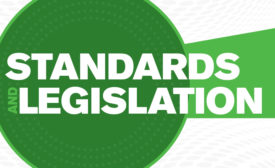Home » Department of Energy (DOE)
Articles Tagged with ''Department of Energy (DOE)''
Announcement is first step in establishing energy-efficiency standard for portables
Read More
DOE Invests $14 Million to Increase Energy Efficiency of US Homes and Buildings
Small-medium building sector and homebuilders are under-resourced when it comes to energy efficiency
May 23, 2016
DOE Recognizes Organizations for Leadership in HVAC Rooftop Unit Efficiency
Combined, these organizations in a single year have saved an estimated 1 trillion Btu
May 9, 2016
DOE Announces Crowdsourcing Initiative
Department aims to draw on the creativity and technical expertise of the American public
May 9, 2016
Copyright ©2024. All Rights Reserved BNP Media.
Design, CMS, Hosting & Web Development :: ePublishing

